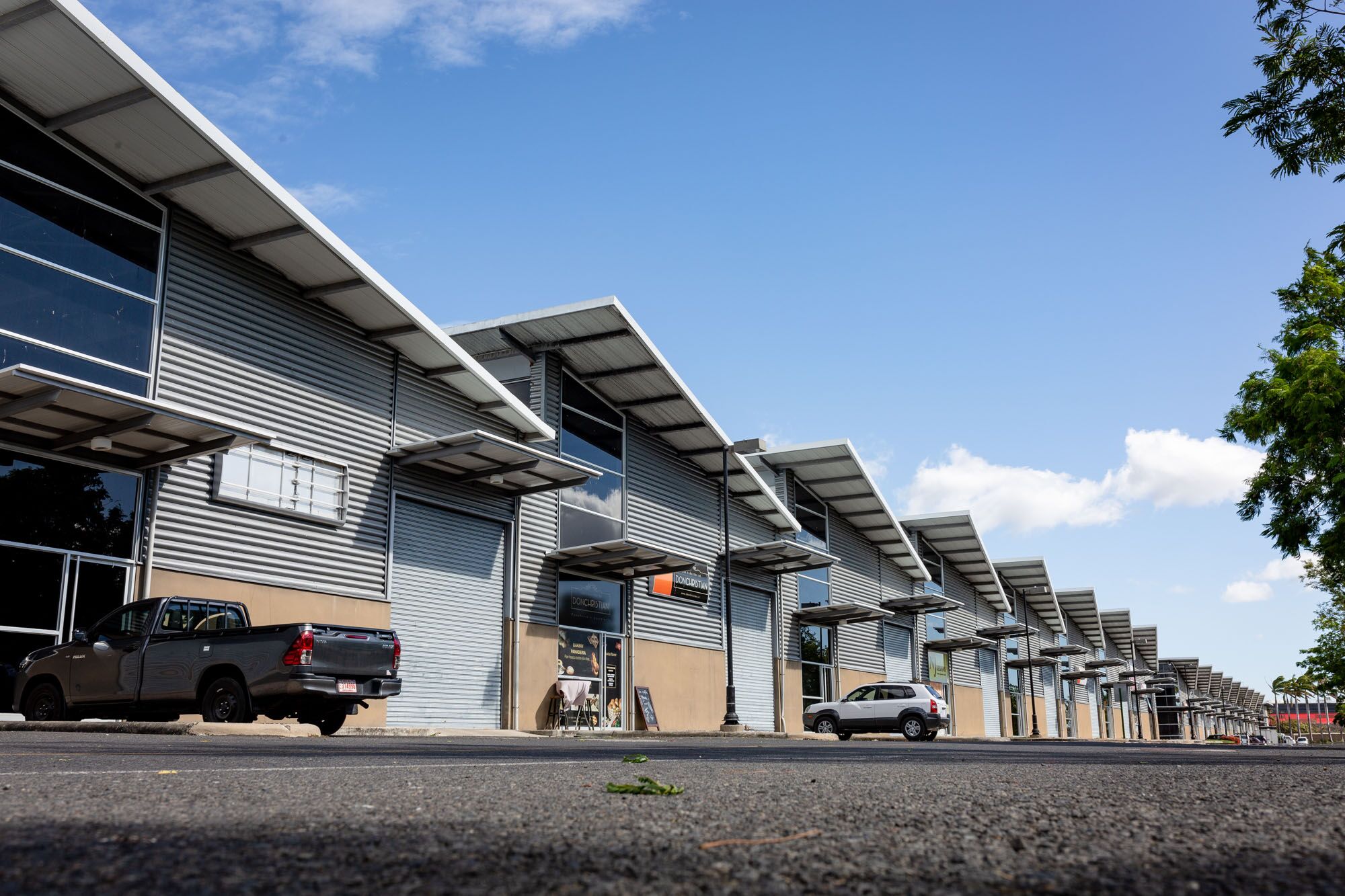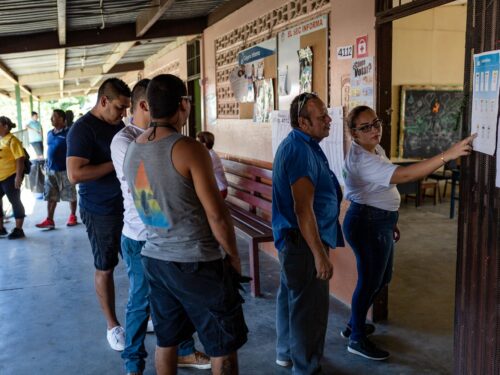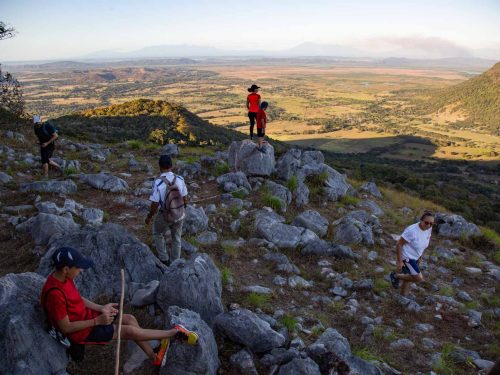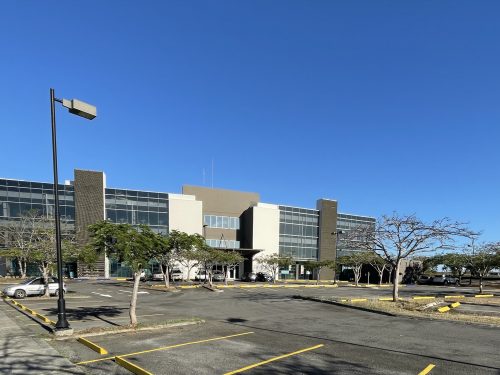
For the first time, the multinational company Sykes will open operations outside of the Greater Metropolitan Area (GMA) in Liberia, Guanacaste in November.
The company has been searching for a place with the best conditions to do so for more than 10 years, according to Sykes director of corporate affairs, Roy Mena.
“In 2013, we reviewed central Puntarenas, Orotina and Liberia but with quite poor and quite negative results, for example, in the number of people who had at least an intermediate level of English,” Mena said in an interview with The Voice of Guanacaste.
Today, the company plans to open 600 employment positions, between 90 and 95% earmarked for personnel from the province. In addition, the door is opened for internal transfer requests for Guanacastecans to return to Guanacaste to work there.
Changes in Guanacaste
Three elements most influenced Sykes’s decision to select the province, according to the company and CINDE (the Costa Rican Coalition of Development Initiatives).
One hint: all of them have been being developed during at least the last five years. In addition, to a great extent, Guanacaste’s ability to finish consolidating itself as a true place of development at the national level depends on these elements.
- An industrial park ready for operations
The Sykes operation will move into the Solarium industrial park in Liberia. It is the first of its kind in the free trade zone and it was established in the province about 13 years ago.
Before Sykes, only one company had set up there, with 30 employees. However, having a free trade zone among their facilities served as bait to attract other companies such as Coca Cola.
Free zone parks, like Solarium, are administrative entities with installations already built (in this case, with four warehouses). These types of real estate projects have all the conditions and government permits needed to welcome companies that operate under the system. The firms set up and rent these spaces.
Solarium’s business director, Gabriela Mata, explained to The Voice months ago that attracting companies is “not as simple as saying ‘I’m going to make a free trade zone park’ and companies are going to show up.” In other words, it is a slow process, but it pays off in the long run.
Yahaira Barquero, CINDE’s investment promotion and capacity development manager for outside of the GMA, agrees. She stated that the province has a competitive advantage by offering a space with adequate and optimal conditions for investment.
Barquero affirmed that having firms like Sykes opens operations makes it possible to generate greater activity so that it takes less time each time to get more companies to set up in the province. In other words, the process of attracting foreign investment could be sped up.
The sector that has investment potential from the foreign point of view in the Chorotega region is the corporate services sector. It is one of the sectors that we have identified with potential to develop and to grow stronger in the area,” the CINDE manager continued.
In addition, the existence of a free trade zone park also helped Sykes achieve another goal: increased profitability.
The company is able to cut costs outside the GAM, explained Mena, from Sykes. “The needs are different. The expectations are different. So there will be differentiated structures for benefits, compensations, operating costs for hiring, real estate, water, electricity, internet, connectivity, services in general. San Jose is an expensive city,” he explained.
In 2010, the country reformed the Free Trade Zones System Law, which establishes differentiated benefits for companies that choose areas outside the GAM as their centers of operation.
- Key alliances, better English
Mena stressed that “the most important resource for considering opening operations is the level of English.” Sykes requires a minimum of 85% proficiency in the second language to apply for open positions.
The free trade zone’s biggest limitation in attracting more companies, according to Mata, from Solarium, is related to the human resources skills, especially the command of English.
In 2016, the Project to Combat Poverty Via Employment in Guanacaste Report, from the Horizonte Positivo association, pointed out that 95% of adults in the province don’t speak a second language.
To address this need, which the rest of the country also has, Sykes established an academy in 2007 that aims at improving the command of the English language for people interested in getting a job offer.
In Guanacaste, the company started using the same model through an alliance with Invenio University.
We put Invenio into the same structure and as of October-November 2019 they already had the first groups with professors certified by us, with our methodology, etc. This made it possible to accelerate development of the English skills side and also the area of technologies required to open,” said Mena.
In 2013, the university started offering careers in information technology, industrial engineering with an emphasis on operations and mechatronics engineering. It did so using a dual modality that combines academic instruction in classroom settings with practical training in companies.
During the months of March, April and May, about 200 people studied English with Invenio and Sykes. Of course, according to Mena, at that time, the company still couldn’t make public that the training was specifically for a position in Liberia since the announcement wasn’t official.
Invenio, in alliance with Sykes, will also operate from Solarium to continue with training processes in English and other technologies.
The Ministry of Labor also participates in the alliance with the Sykes academy by means of 100% subsidies to people during the duration of the training process.
“In Costa Rica, there are many people who know about technology, but they aren’t bilingual. It doesn’t work for us for people simply to study technology and have high levels of knowledge in technology but not be bilingual. English is just the key that opens the door,” concluded Mena.
- Important infrastructure
The fact that Guanacaste is home to the Daniel Oduber International Airport is key to the province’s development, according to Barquero, from CINDE.
“It adds up because assistance from its collaborators and its clients is very important for the company, thinking about how it provides service to external customers that could visit Costa Rica and could be in an area close to different amenities,” she commented.
She added that it is an element that’s not just influential for Sykes. For example, Barquero said the infrastructure element was vital in other service companies’ decisions to move in and in what she calls “a possible development point for high-tech corporate services.”
She’s talking about companies like GAP and the national company Avantica, a pioneer in Guanacaste, which was recently acquired by the U.S. firm Indecomm.
Of course, most companies set their sites on a single canton, Liberia, although its impact spreads through the rest of the province.
Challenges That Persist
Even with the advances that Guanacaste has made to generate development in areas beyond tourism, there are challenges that persist. Whether more firms like Sykes choose Guanacaste to set up for the first time or to expand their businesses outside the GAM will depend on how they are approached.
The most important challenge is training in both languages and technology, those interviewed for this article agreed.
The State of Education Report IV pointed out that most of the public or private universities of Guanacaste offer careers such as tourism, administration, education or law.
The province’s most important task is to contribute to the emergence of new careers in strategic areas of production, which in turn increase economic opportunities for the local population,” the report cites.
For example, CINDE believes it’s time to start talking about multilingualism and to do more and more articulated work between communities, academic institutions and companies themselves.
“Gaps need to be closed and talent needs to adapt more and more to the global needs of the company, and for that, it is very important to analyze the region’s response. Let’s see, we have made progress, but we have to continue reinforcing it, and that depends on the commitment of all parties,” Barquero commented.
Even with the challenges, Sykes thinks the future is promising.
“In Guanacaste, there’s enough human talent to develop. In five, six, seven years, we could have 5,000 or 10,000 jobs if more companies are encouraged,” concluded Mena.







Comments